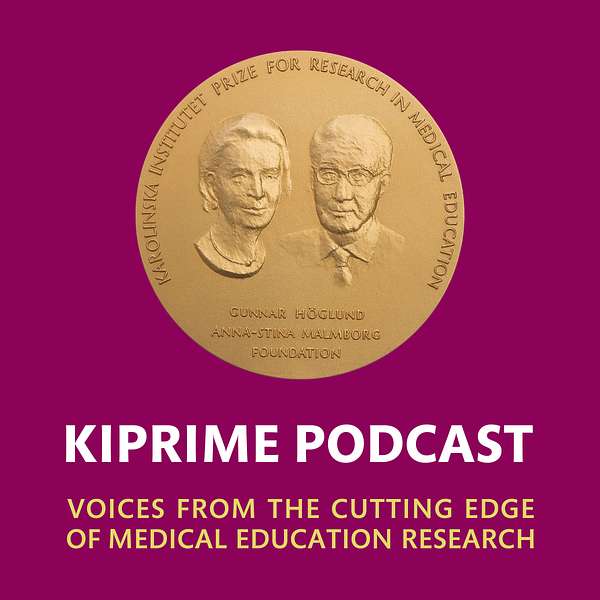
KIPRIME Podcast
The Karolinska Institutet Prize for Research in Medical Education is a major international award and was created to recognise and stimulate high-quality research in the field and to honour scientists who have made a significant contribution to medical and healthcare education. In this podcast series we’ll explore the origins of the KIPRIME and discover the passion and commitment of the people who made it happen; we’ll also hear from previous winners and discover how their research has helped to blaze a trail in this emerging field. Inspiring and supporting the next generation of researchers is at the heart of the prize and a major initiative in 2019 was to establish a fellowship programme. This exciting project has brought together some of the brightest minds who are at the cutting edge of research in medical education. From examining the neuroscientific correlates of clinical reasoning to exploring the dominance of the global north, we’ll hear from 13 inspiring scientists, doctors, psychologists and researchers.Your host for the series is Alina Jenkins; a BBC presenter and journalist since 2001 with an extensive background in communicating science. She also works in the pharmaceutical, finance and engineering sectors as a communications coach.
KIPRIME Podcast
The properties of excellent clinical teaching: being a context expert is not enough - an interview with Professor David Irby
•
Alina Jenkins
•
Season 1
•
Episode 4
David M. Irby, PhD is a professor of medicine, member of the UCSF Academy of Medical Educators and Center for Faculty Educators, and the former vice dean for education at UCSF.
Along with Professor Richard Reznick, he was the winner of the Karolinska Institutet Prize for Research in Medical Education in 2010. The three cornerstones of his work have been to advance understanding of clinical teaching, share best practices through faculty development and publications, and continuously improve medical curricula.
In this interview we discuss his career and why fantastic expertise doesn't necessarily make you a good teacher.